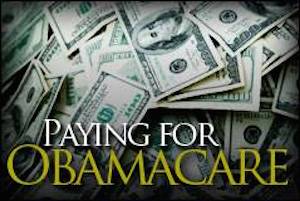Space Coast Daily Healthcare Headlines of the Week
By Dr. James Palermo // June 24, 2014
Topics Include How Good Is Your Doctor?, The Pope and Pot, Paying For Obamacare – and More
BREVARD COUNTY, FLORIDA — Welcome to SpaceCoastDaily’s Healthcare Headlines.
HOW MUCH DO YOU KNOW ABOUT YOUR DOCTOR’S COMPETENCE?
 How do you really know if your physician, surgeon or hospital is good, bad or somewhere in between?
How do you really know if your physician, surgeon or hospital is good, bad or somewhere in between?
Forbes contributor, Dr. Robert Pearl, executive director and CEO of The Permanente Medical Group, the largest medical group in the nation, opines on the challenge we face to find reliable information related to the quality of our healthcare providers’ outcomes, level of clinical expertise and diagnostic acumen.
Of course, the doctor-patient relationship is important, and there are a plethora of online sites that provide subjective review and comments of experiences with physicians that have an impact on physician selection, but what most patients care about is whether their doctor’s clinical results are better or worse than others.
That information may be available, but knowing how to navigate the system to find it is the key.
POPE FRANCIS CONDEMNS THE LEGALIZATION OF RECREATIONAL DRUGS
 Public opinion is rapidly changing toward more lenient policies related to recreational drug use, particularly marijuana.
Public opinion is rapidly changing toward more lenient policies related to recreational drug use, particularly marijuana.
With the world’s attention on the ongoing contentious debate over legalizing or decriminalizing the use of marijuana, Pope Francis, wielding the authority and influence of the Catholic Church, has weighed in on the potential evils of legalizing the use of recreational drugs.
Speaking at the International Drug Enforcement Conference in Rome, the Pope condemned the legalization of recreational drugs as a flawed and failed experiment, telling participants, “Drug addiction is an evil, and with evil there can be no yielding or compromise.”
Although espousing relatively progressive and populist views on other controversial issues, Pope Francis’ resolute stance against marijuana legalization is counter to a growing push for it.
DEATHS DUE TO ABUSE AND OVERDOSE OF PRESCRIPTION PAINKILLERS ON THE RISE
 In a first-of-its-kind review, researchers from McGill University in Canada have revealed exactly how much the devastating death rate due to prescription pain killers has increased in recent years, and, publishing their results in in the American Journal of Public Health, call it an “epidemic.”
In a first-of-its-kind review, researchers from McGill University in Canada have revealed exactly how much the devastating death rate due to prescription pain killers has increased in recent years, and, publishing their results in in the American Journal of Public Health, call it an “epidemic.”
Nicholas King, study author from the Biomedical Ethics Unit in the Faculty of Medicine at McGill, explains that he and his team “wanted to find out why thousands of people in the U.S. and Canada are dying from prescription painkillers every year, and why these rates have climbed steadily during the past 2 decades.”
According to the team, the US and Canada rank number 1 and number 2 in per capita opioid (includes morphine, oxycontin, methadone, codeine and others) consumption, respectively, and in 2010 in the US alone, prescribed painkillers were involved in over 16,000 deaths.
U.S. TAXPAYERS SUBSIDIZING 76% OF ACA POLICY PREMIUMS
 A new Health and Human Services report indicates that the large subsidies for health insurance that helped fuel the successful drive to sign up approximately 8 million Americans for coverage under the Affordable Care Act (ACA, aka Obamacare) are on track to cost billions of dollars this year.
A new Health and Human Services report indicates that the large subsidies for health insurance that helped fuel the successful drive to sign up approximately 8 million Americans for coverage under the Affordable Care Act (ACA, aka Obamacare) are on track to cost billions of dollars this year.
According to the report, nearly nine in 10 Americans who bought healthcare coverage on the federal government’s healthcare marketplaces received government assistance to offset their premiums, with U.S. taxpayers projected to subsidize 76 percent of the average monthly premium in the 36 federally administered markets.
As a result of the subsidies, about two-thirds of HealthCare.gov shoppers who qualified for tax credits are paying $100 or less each month for health insurance.
TECHNOLOGY ‘ADDICTION’: IS IT REAL AND SHOULD IT BE TREATED?
 As we become more and more “wired, we don’t always have the healthiest relationship with technology.
As we become more and more “wired, we don’t always have the healthiest relationship with technology.
From incessantly checking emails to losing ourselves in social media sites, we lug around serious digital baggage day after day that wreaks havoc on our minds and bodies.
Medical News Today looks at some of the issues surrounding perceived excessive engagement with a user’s smartphone, the Internet or social networking sites that comes at the expense of their mental and/or emotional well-being. Is this behavior the result of a cultural transformation or a genuine clinical issue manifested by a dependence best defined as an “addiction?”
The bottom line is that it probably doesn’t matter how it’s categorized — the problem is real, and how it’s addressed may vary.
Recognition that technology “addiction” is often found to be a compensatory behavior for offline social or psychological difficulties should be an element in any approach to dealing with this type of dependence.
GET OFF YOUR DUFF — DECREASE RISK OF SOME CANCERS
 In recent years, a growing body of research has focused on sitting time in relation to health.
In recent years, a growing body of research has focused on sitting time in relation to health.
The medical literature is replete with evidence that a sedentary existence contributes to diabetes and cardiovascular disease risk, obesity, some types of cancer and all-cause mortality.
According to a recent study in the Journal of the National Cancer Institute, people who spend the majority of their day sitting, even if they exercised regularly, can be up to 66% more likely to develop certain types of cancer than those who do not.
These study findings suggest that episodic exercise, while certainly important, is not enough, and priority should be placed on refining interventions, independent of physical activity and obesity prevention, to reduce sedentary time — get up out of that chair or sofa — and lower cancer risk and overall mortality.












